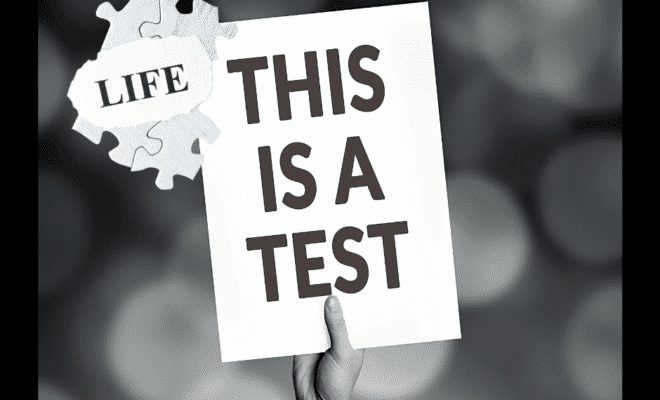She’s Mine: Eight Lessons About Alzheimer’s
Once Dad’s memory loss became overwhelming to Mom, my parents moved four blocks from where I lived. Whenever Dad got mad at Mom, he walked to my house. Each time he walked through my screen door brought a smile to my face, and a call from mom, making sure he’d arrived.
One day, he came inside and noticed some boxes sitting in my living room. His eyes twinkled as he examined the coffee table and end tables not yet assembled. Dad liked to tinker.
Lesson 1: Let him/her do it.
“I can do that,” he said.
We put the tables together, but a screw ended up cracking the wood a bit. Frustration showed in his downcast eyes.
Lessons 2: Encourage him/her not to give up and to accept his/her limitations.
“Wow, Dad, thanks. I couldn’t have done this alone. Now, every time we see that dent, we’ll remember our time together.” I giggled. “It’s our secret mark.”
There was his smile. When Dad felt satisfied, his face would turn red, and his lips would curve up into the most adorable grin.
Dad liked one-on-one interactions. Groups made him nervous and anti-social. His memory loss exacerbated this.
Lesson 3: Don’t forget the spouse.
One fall day, my brother’s family came to town. I rounded the corner of Mom and Dad’s house as my brother’s family headed inside. When Dad saw the four of them going up the porch steps, he passed them going down.
Mom hurried to the door. “Don’t let him leave. He’ll get lost!”
“Do you want Mom or Dad?” I asked my brother.
“I’ll handle, Mom,” he said, rushing inside.

Lesson 4: Distract, distract, distract.
Dad walked to the garage and entered with a huff. I gave him a minute before following.
“Wow, you’ve been organizing.”
Dad was the epitome of organization. The garage looked perfect like it always did. Nothing had changed.
“Yep,” he said.
He tinkered while we chatted for several minutes. Then I approached him, shivering.
“It’s getting cold, Dad. Have you finished here? We should go in.”
“Oh, sure,” he said, forgetting why he’d come out in the first place.
Lesson 5: Empathize with the pain.
Nothing prepared Mom for the changes confronting them. The man she’d married decades ago had changed. She wanted her husband back and couldn’t accept this new reality.
At a hotel on a trip to visit my older sister, Dad and Mom began arguing.
Dad picked up a magazine. “Last time we were here-”
“We’ve never been here before,” Mom insisted.
They repeated their interaction verbatim about three times. Finally, Dad threw the magazine and stomped out of the room. Mom panicked.
“He’ll run off somewhere,” she cried.
“I’ll find him,” I said.
She sighed, “You might think it’s okay, but I can’t lie to him.”
I nodded. Alzheimer’s demands grace for the victim and the spouse. To her, letting him believe they’d been there before equaled lying. But I saw it differently. Five men in my family are color-blind. Even though an item is brown, to them, it’s blue-which is the color your face will become if you argue with them. They believe what their mind tells them. Don’t we all?
I found Dad wandering the hall on the third floor, his eyes darting from door to door. His room was on the second level.
“Hi, Dad. Are you taking a walk?”
A blank stare crossed his face. “Yeah.”
“Let’s go to your room and visit.”
“Okay,” He bit his lip. His face reddened as he fumbled with his room key.
I started toward the staircase, and he followed.

Lesson 6: Demand respect from others.
At this stage, he knew he was forgetting. It made him unhappy, embarrassed, and even angry.
I tried to look at it as a new adventure. I could tell him the same stories over and over because he wouldn’t remember. It became a challenge to help without letting him think I was helping.
The day we took Dad in for an evaluation, Mother and I waited in the conference room with the doctor. The doctor told us he came from Germany. I didn’t see why that mattered. What mattered was the cold and arrogant manner he displayed.
My younger sister and my dad joined us after the assessment. The doctor talked about Dad in the third person. That triggered my sister, and she reprimanded him. He said the testers had asked Dad a series of questions anyone could answer, and he didn’t do well. Some of the questions included: What is today’s date? What is your name? Who is the president right now? Who was the first president?
When they got to that last question, I interrupted. “I don’t think he ever knew that.”
My younger sister nodded her agreement.
“Are you saying he’s stupid?” the doctor asked.
My eyebrows flitted up. “Uh, no. I’m saying he never knew that answer.”
Lesson 7: Realize how much his/her life has changed.
I was trembling when I got home. Banging the keys as hard as I could, I typed a text to my older siblings, telling them what had happened.
“Of course, he knew the presidents. He helped us with our homework all the time. He was good with English, math, and history,” my older siblings replied.
Dumbfounded, my younger sister and I realized that their dad wasn’t the Dad we knew. Our dad couldn’t spell or write and didn’t remember history. There were twelve years between my oldest and youngest siblings. The disease had progressed a lot in those years.
Lesson 8: Remember, he/she is still the same person.
When Mom couldn’t deal with Dad’s Alzheimer’s anymore, she asked me to go with them to the hospital.
At the hospital, Mom filled out paperwork while the nurse sat down with Dad.
The nurse pointed at me. “So, who is this?”
Dad’s eyes met mine, and he flashed that adorable grin. “She’s—she’s my-” His face showed his love for me.
He was an amazing father.
“You don’t remember who she is?” the nurse asked in a condescending tone.
I wanted to slap her.
“She’s my-” His face fell. “Her name-” His eyes dropped to the floor.
“It’s okay, Daddy,” I patted his hand, and he placed his over mine.
“Who is she?” the nurse demanded.
Tears welled up in his eyes as he peered into mine. “She’s-” He sighed, “She’s mine.”
Those two words are my most precious memory. With the last complete sentence that he ever spoke, he claimed me as his own, and I will never forget.











That is a beautiful story.
Thank you, Gail.
I had forgotten a lot of that (I am the “younger sister”) and it was nice to read this. The last sentences I had with dad were equally precious to me. Karyn and I were visiting dad in the nursing home Alzheimer’s wing, and he and I stood in the dining room, leaning against the counter. His ability to string coherent words together was getting harder and harder. He was watching Karyn who was across the room (I forget what she was doing), and he said something like “is she your wife?” or “did you get married” and I grinned at him, proudly saying YES. A minute or so passed and he nodded. Then he said, “That’s good.” And that meant the world to me. Who knows if he actually understood – regardless, I hold it dear.
I’m glad you have that memory! Thanks, sis.